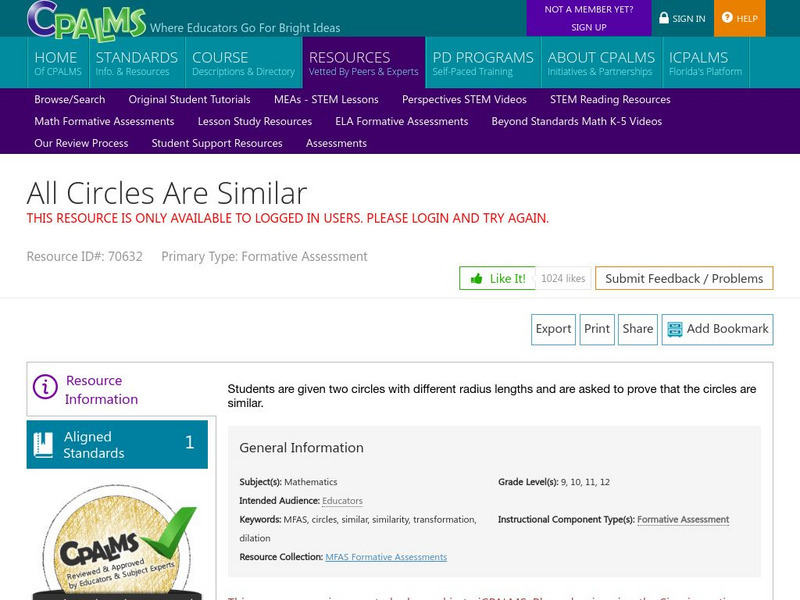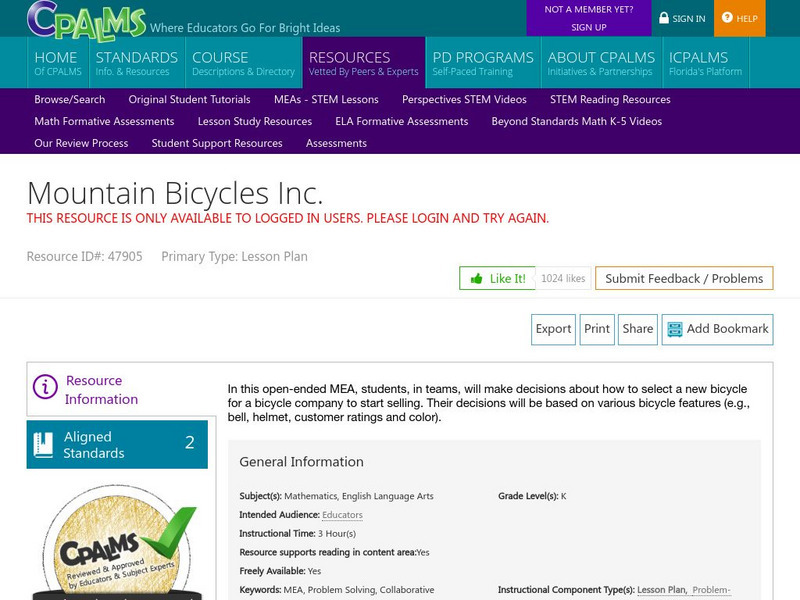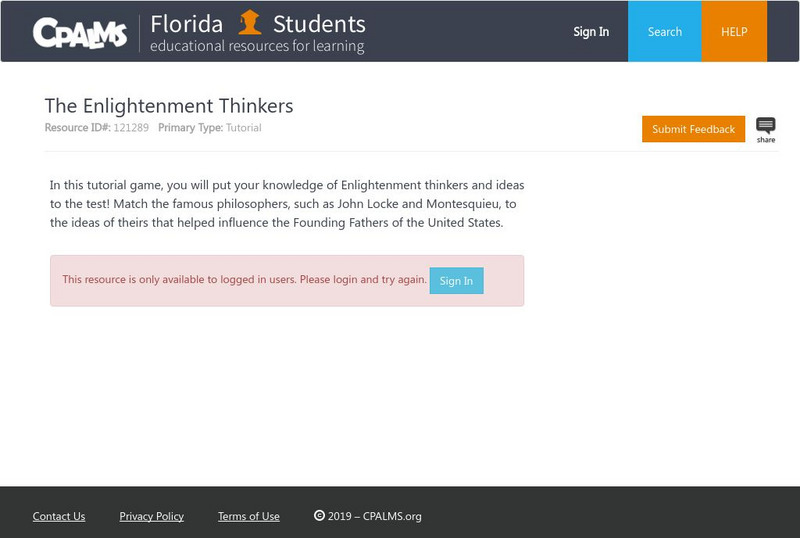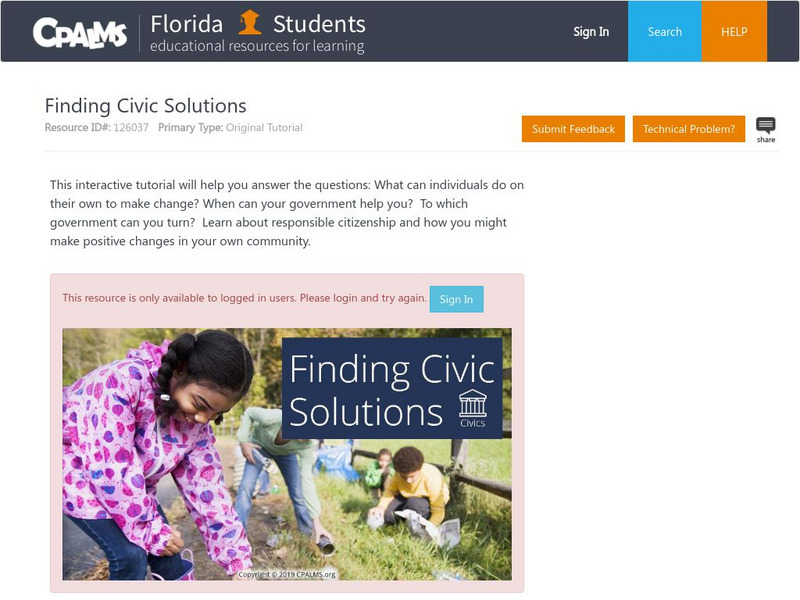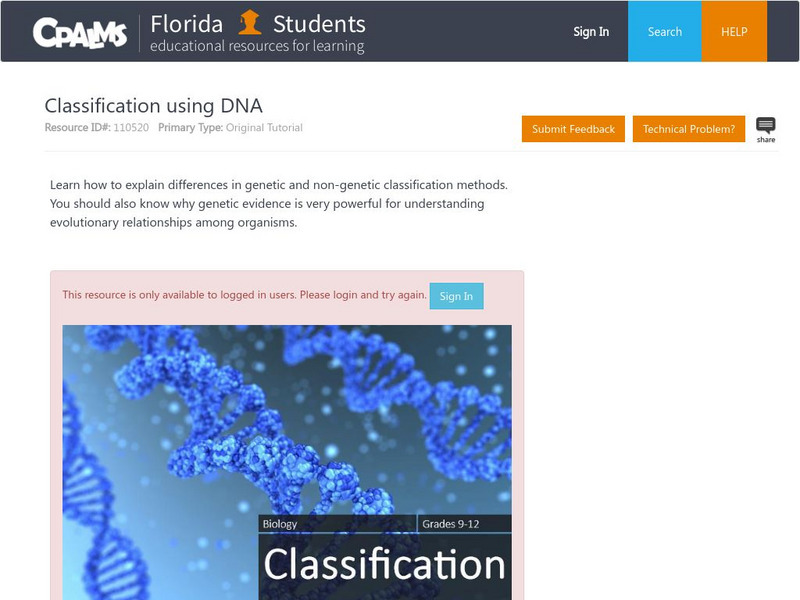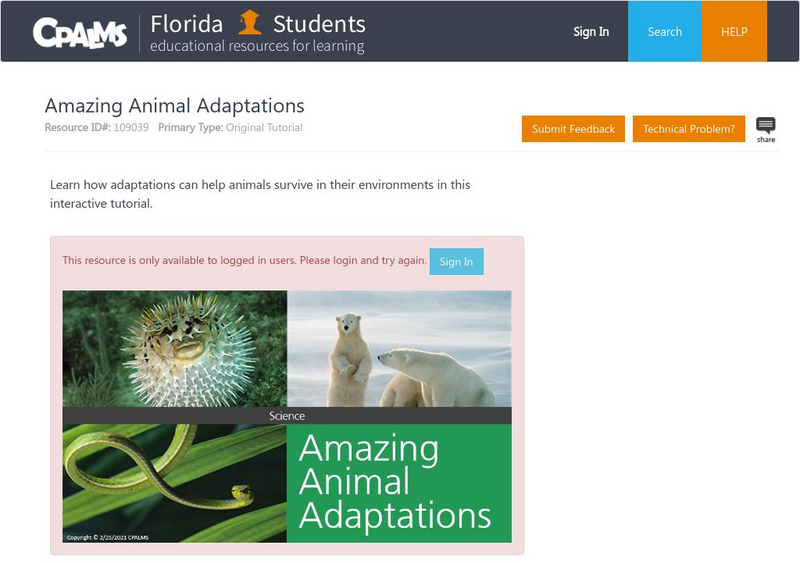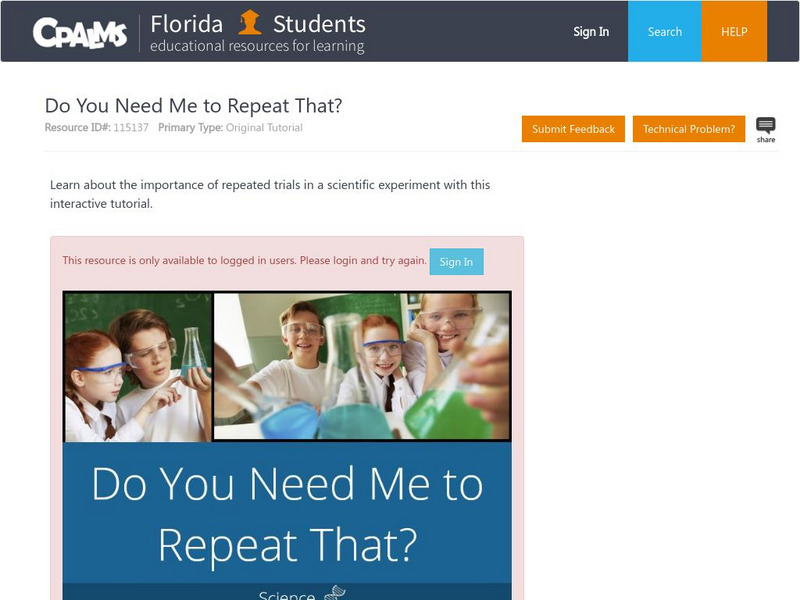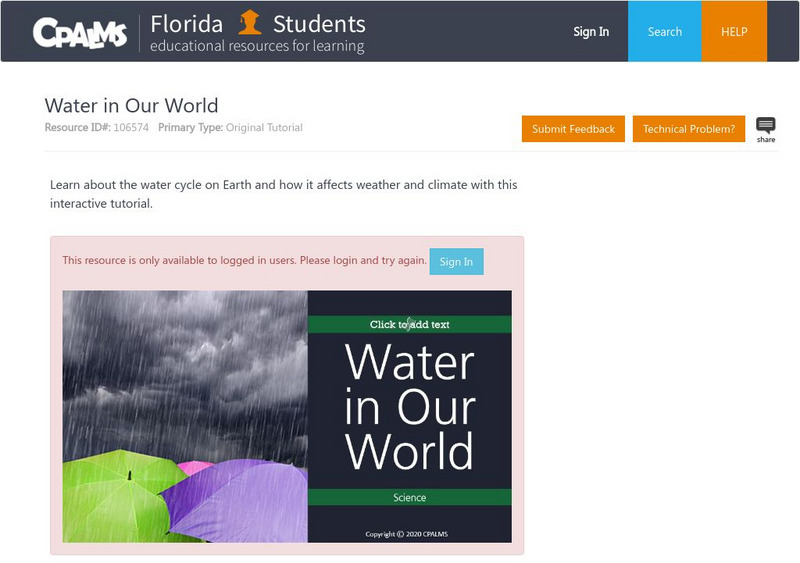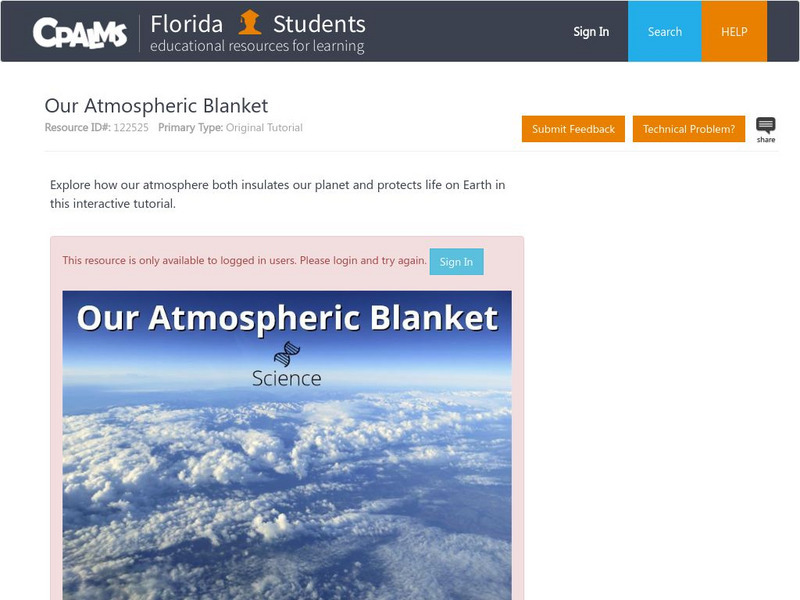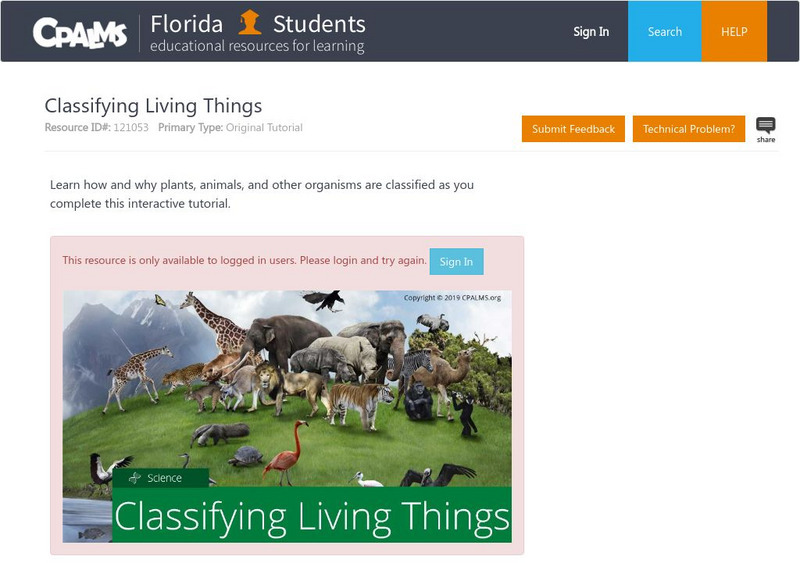CPALMS
Cpalms: Structures and Skeletons
In this interactive learning module, students read informational text about dinosaurs and examine paragraph structure. They will learn about different types of text structure for informational paragraphs, identify the most effective...
CPALMS
Cpalms: All Circles Are Similar
[Free Registration/Login Required] A formative assessment where students are asked to demonstrate how to prove that two circles are similar. Includes downloadable worksheet and a rubric, as well as followup questions to clarify or deepen...
CPALMS
Cpalms: Measure Up! Measuring to Make a Line Plot
[Free Registration/Login Required] In this lesson, students will generate measurement data by measuring lengths using rulers marked with halves and fourths of an inch and show the data by making a line plot. This lesson includes an...
CPALMS
Mountain Bicycles, Inc.
[Free Registration/Login Required] During this MEA simulation, kindergarten students will be deciding which type of bike will be best for a company to sell in their community. Students must work in cooperative groups as they determine...
CPALMS
Florida State University Cpalms: Florida Students: The Enlightenment Thinkers
Links to a concentration game where students must match famous Enlightenment thinkers to their ideas.
CPALMS
Florida State University Cpalms: Florida Students: Finding Civic Solutions
These tutorial explains what responsible citizenship looks like and ways individuals can contribute to their communities. A PDF file of the tutorial is available.
CPALMS
Florida State University Cpalms: Florida Students: Evolution: Examining the Evidence
Strengthen understanding of how different types of scientific evidence support the theory of evolution, including direct observation, fossils, DNA, biogeography, and comparative anatomy and embryology.
CPALMS
Florida State University Cpalms: Florida Students: Diagramming Diversity I
Identify how living organisms are classified according to their evolutionary history. Recognize how a hierarchical classification scheme can be used to classify living organisms based on physical characteristics.
CPALMS
Florida State University Cpalms: Florida Students: Diagramming Diversity Ii
Expand understanding of classification with this tutorial designed to help you learn how living organisms are classified according to their evolutionary history.
CPALMS
Florida State University Cpalms: Florida Students: Classification Using Dna
Identify the differences in genetic and non-genetic classification methods. Why is genetic evidence powerful for understanding evolutionary relationships among organisms? Find out!
CPALMS
Florida State University Cpalms: Florida Students: Climbing Around the Hominin Family Tree
Identify basic trends in the evolutionary history of humans, including walking upright, brain size, jaw size, and tool use.
CPALMS
Florida State University Cpalms: Florida Students: Natural Selection
Identify the conditions required for natural selection and describe how it can result in changes in species over time. Follow Charles Darwin through a life of exploration, observation, and experimentation to see how he developed his ideas.
CPALMS
Florida State University Cpalms: Florida Students: Amazing Animal Adaptations
Explore various characteristics and adaptations that help organisms survive in different environments.
CPALMS
Florida State University Cpalms: Florida Students: Do You Need Me to Repeat That?
Learn how repeated trials during experimentation leads to more reliable results.
CPALMS
Florida State University Cpalms: Florida Students: Some Like It Hot
Learn how heat is a form of energy that can be helpful and it can come from many sources and change form.
CPALMS
Florida State University Cpalms: Florida Students: Water in Our World
Discover the processes of the water cycle and learn about its effect on weather and climate.
CPALMS
Florida State University Cpalms: Florida Students: Natural Disasters
Enrich studying natural disasters like hurricanes and tornadoes. Know how to identify several types of natural disasters that occur in Florida, and describe how these disasters can affect people living there.
CPALMS
Florida State University Cpalms: Florida Students: Atmospheric Blanket
A tutorial exploring the atmospheric blanket to show how the atmosphere supports life and insulates the Earth.
CPALMS
Florida State University Cpalms: Florida Students: Levels of Organization
FSERL: Explanation of the hierarchical levels of living things.
CPALMS
Florida State University Cpalms: Florida Students: The Cell Theory
Learn how the Cell Theory defines living organisms.
CPALMS
Florida State University Cpalms: Florida Students: Classifying Living Things
Learn how all living things are classified.
CPALMS
Florida State University Cpalms: Florida Students: Scientific Laws
Scientific law is defined and contrasted to societal laws. Examples are given.
CPALMS
Florida State University Cpalms: Florida Students: Models in Science
An explanation of what models are and how using them benefits science. Examples are given.
CPALMS
Florida State University Cpalms: Florida Students: Tracking Distance Over Time
Using turtle migration to find the relationship when measuring distance over time.



